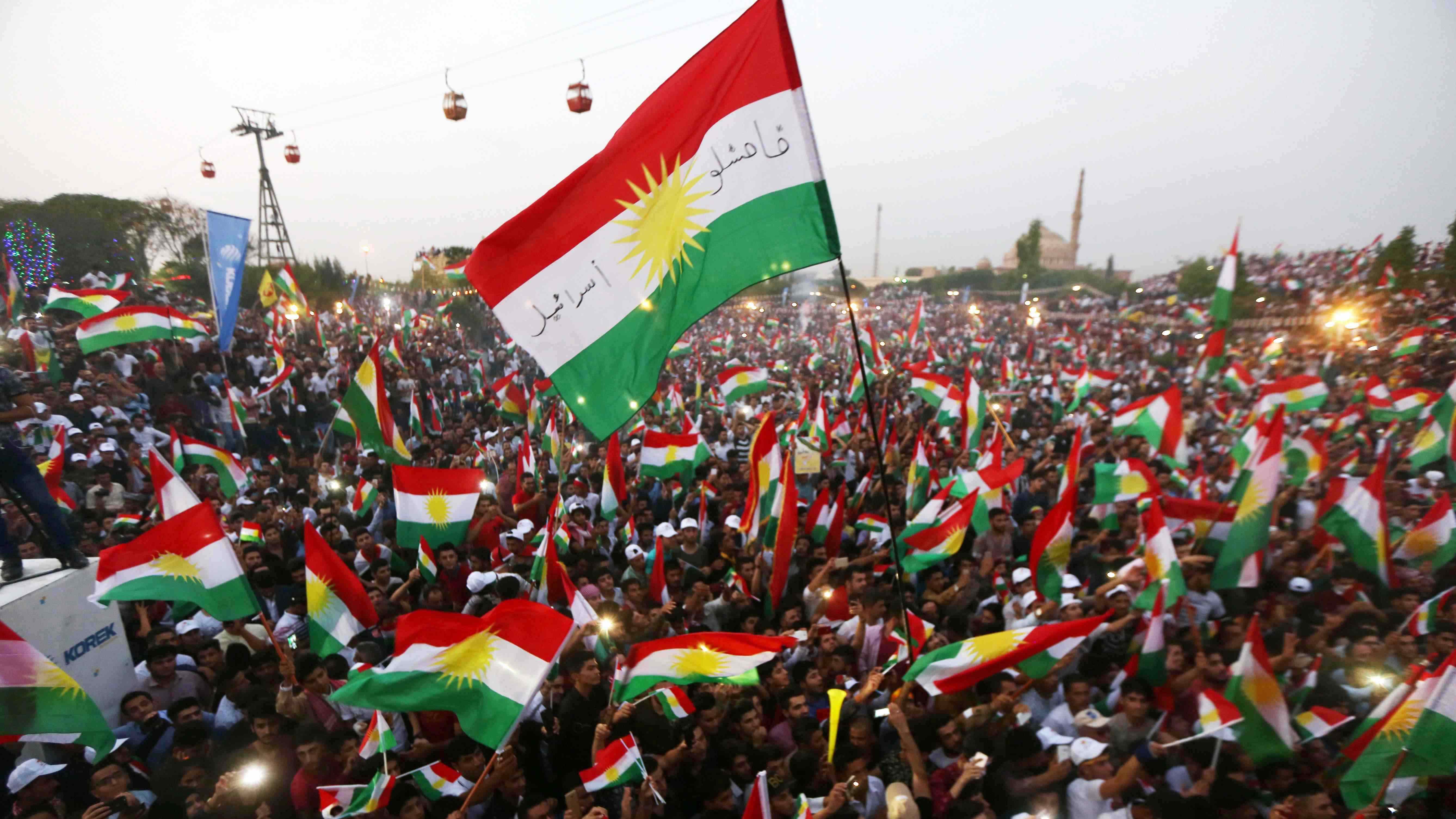The Iraqi Kurdish plan to hold a September 25 independence referendum has hit a legal roadblock with just a week to go, amid growing international pressure to call off the controversial vote.
Iraq's Supreme Court on Monday ordered the suspension of the referendum on the independence of Iraqi Kurdistan.
"The Supreme Court has issued the order to suspend organizing the referendum set for September 25... until it examines the complaints it has received over this plebiscite being unconstitutional," the court said in a statement.
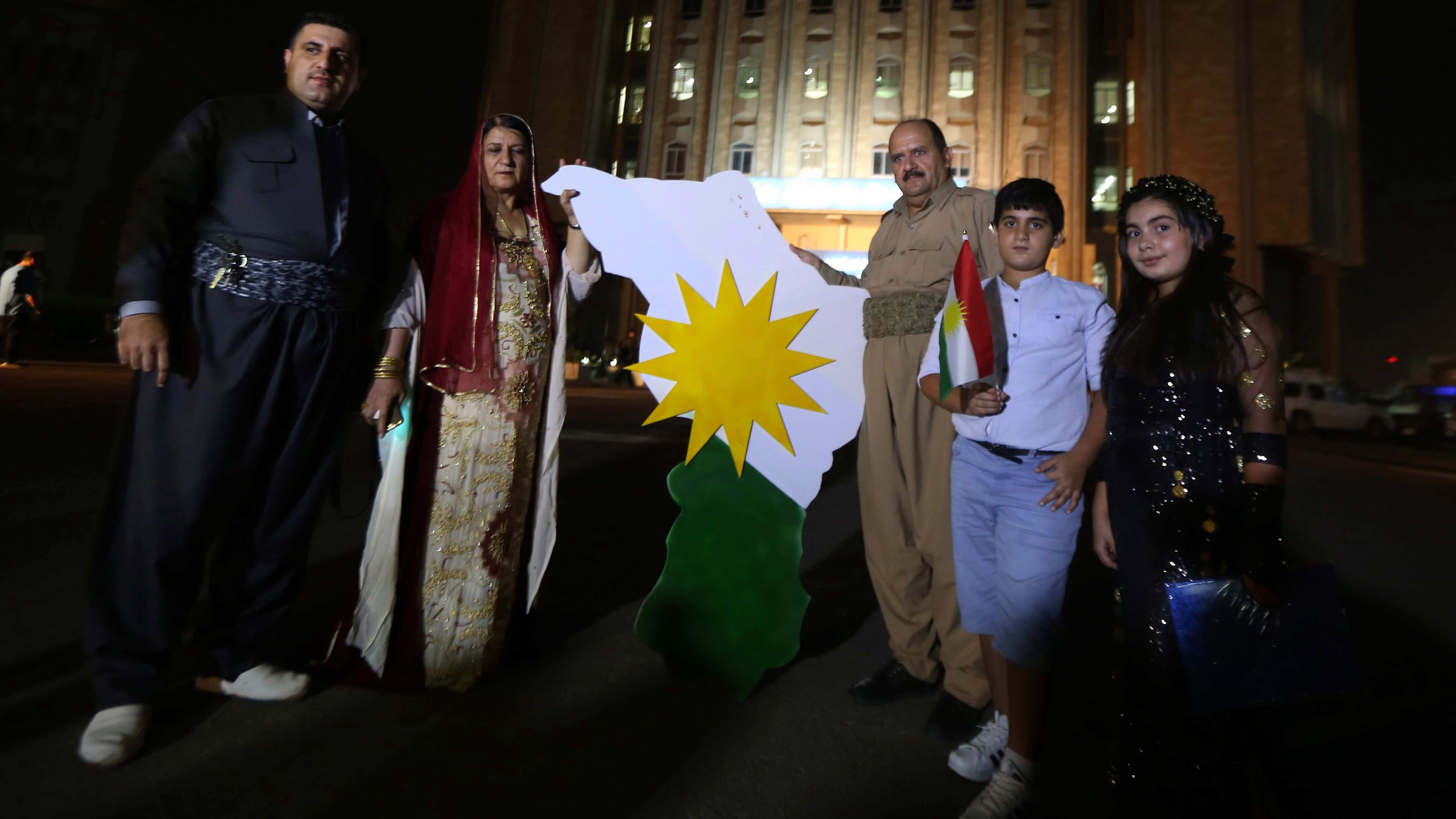
Iraqi Kurds stand outside Kurdistan's parliament building in Arbil, capital of the autonomous Kurdish region of northern Iraq, September 15, 2017. /AFP Photo
Iraqi Kurds stand outside Kurdistan's parliament building in Arbil, capital of the autonomous Kurdish region of northern Iraq, September 15, 2017. /AFP Photo
Court spokesman Ayas al Samouk said it had "received several complaints," as a parliamentary source said at least eight lawmakers had called on the court to intervene on constitutional grounds.
Prime Minister Haider al-Abadi's office said it had also filed a complaint against the referendum in the oil-rich autonomous Kurdish region of northern Iraq on constitutional grounds.
International pressure
Britain on Monday added its voice to the international calls for scrapping the contentious referendum. British Defence Secretary Michael Fallon on Monday headed to the Iraqi Kurdish capital of Arbil, where he said he would try to persuade Iraqi Kurdish leader Massud Barzani to withdraw from the referendum.
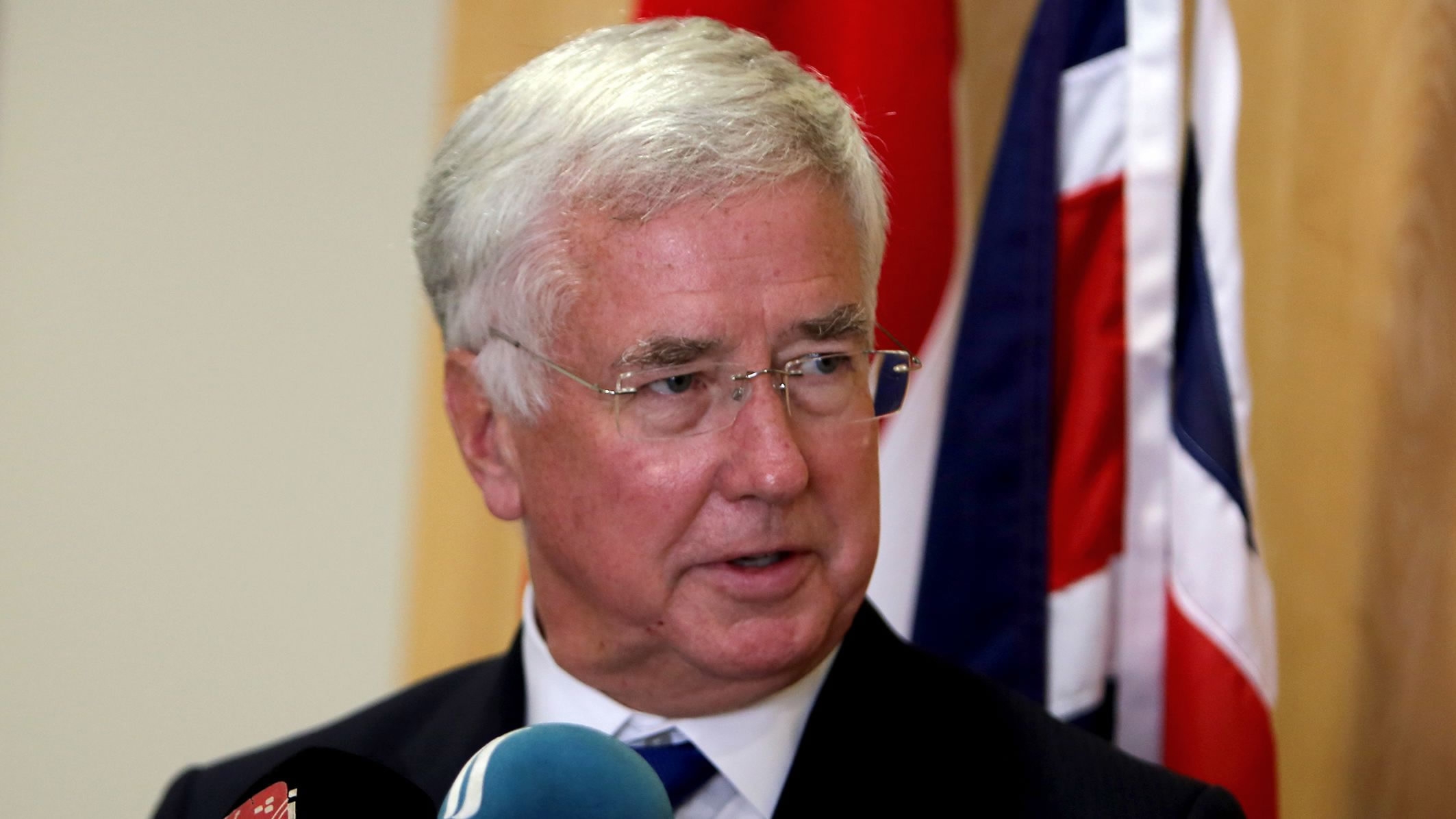
Britain's Defence Secretary Michael Fallon holds a press conference in the Iraqi capital Baghdad, September 18, 2017. /AFP Photo
Britain's Defence Secretary Michael Fallon holds a press conference in the Iraqi capital Baghdad, September 18, 2017. /AFP Photo
Barzani’s call in June for a referendum to declare independence has raised concerns of separatist aspirations in neighboring states, including Iran and Turkey.
Iran warned on Sunday that independence for Iraqi Kurdistan would mean an end to all border and security arrangements with the regional government.
Turkey, unsettled at the prospect that Arbil might provoke the separatist dreams of its own Kurdish minority, has threatened that Kurdistan will pay "a price" in the event of a "yes" vote.
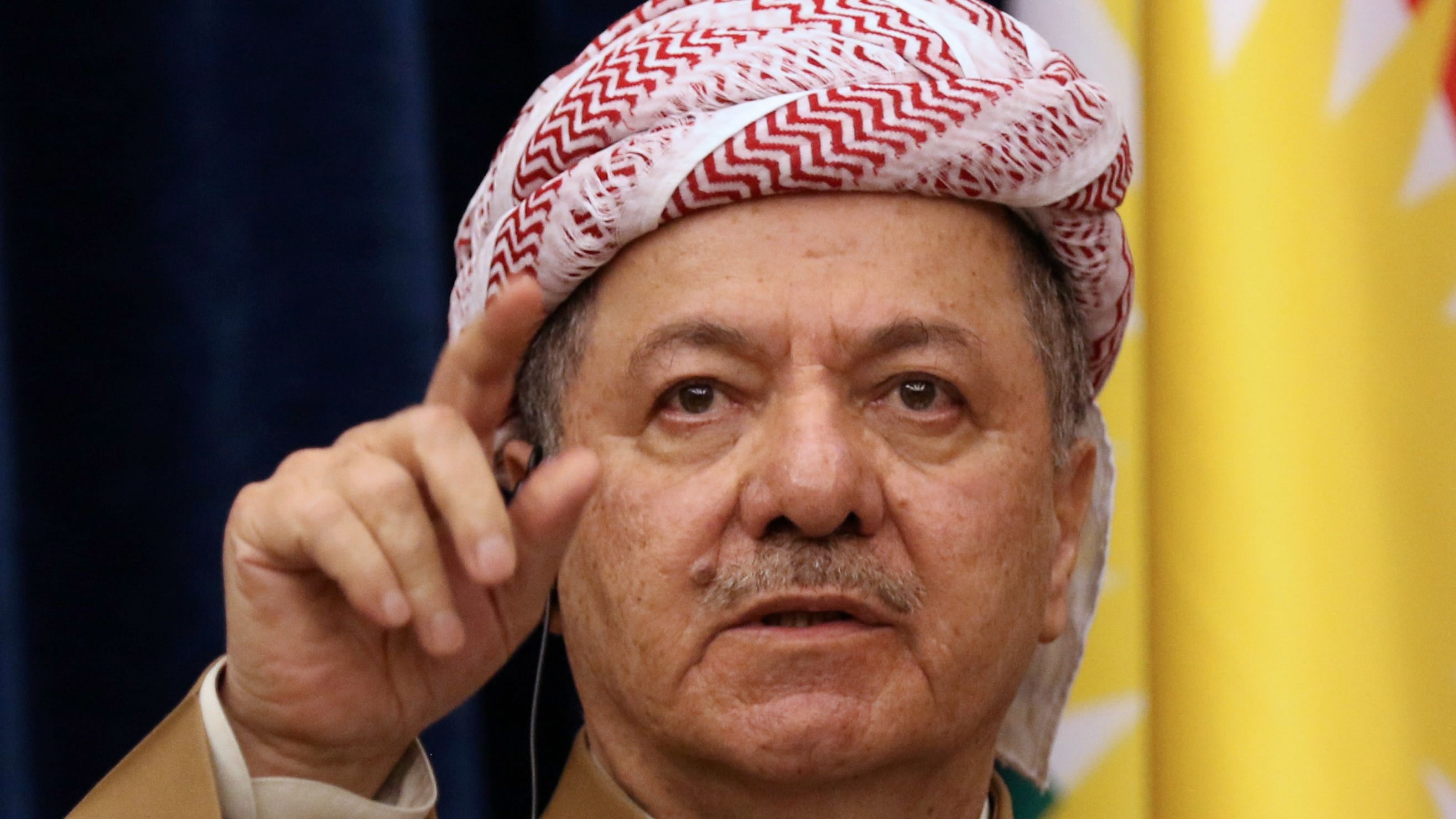
Iraqi Kurdish leader Massud Barzani during a press conference in Arbil, capital of the Kurdish autonomous region in northern Iraq, on April 20, 2017. /AFP Photo
Iraqi Kurdish leader Massud Barzani during a press conference in Arbil, capital of the Kurdish autonomous region in northern Iraq, on April 20, 2017. /AFP Photo
Even the US and the United Nations have expressed their opposition. On Friday, the US said the referendum should be called off.
UN Secretary-General Antonio Guterres on Sunday urged Iraqi Kurds to scrap their referendum plans, arguing it would detract from the fight against Islamic State jihadists. The UN has urged Barzani to enter talks with Baghdad aimed at reaching a deal within three years.
Here’s a look at the Kurds, a non-Arab ethnic group, who have an estimated population between 30 and 35 million and are spread across four countries but remain without a state of their own.
Kurds, the mountain people
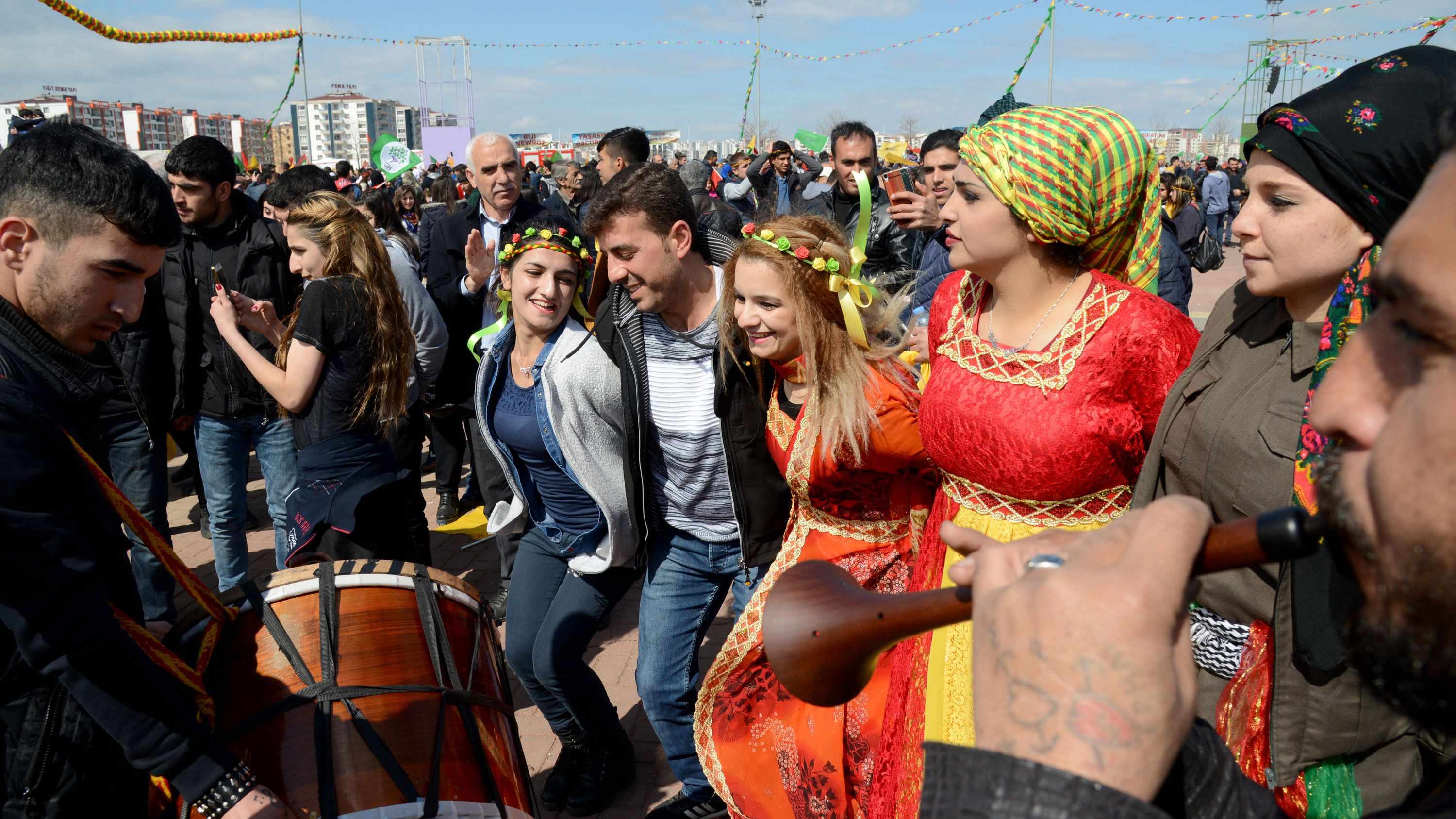
Turkish Kurds dance as they gather for Nawroz celebrations for the new year in Diyarbakir, southeastern Turkey, on March 21, 2017. Nawroz is an ancient Persian festival, which is also celebrated by Kurdish people, marking the first day of spring, which falls on March 21./AFP Photo
Turkish Kurds dance as they gather for Nawroz celebrations for the new year in Diyarbakir, southeastern Turkey, on March 21, 2017. Nawroz is an ancient Persian festival, which is also celebrated by Kurdish people, marking the first day of spring, which falls on March 21./AFP Photo
The Kurds inhabit primarily mountainous regions that cover almost half a million square kilometers (200,000 square miles), spanning from southeast Turkey through northern Syria and Iraq to central Iran.
They number around 12 to 15 million in Turkey (about 20 percent of the overall population), six million in Iran (less than 10 percent), 4.7 million in Iraq (15-20 percent), and more than two million in Syria (15 percent).
The Kurds have preserved their culture, dialects and clan-based social structures. Large expatriate communities exist in Armenia, Azerbaijan, Germany and Lebanon.
Although predominantly Sunni Muslims, some are Christians and their political structures are often non-denominational.
Tense ties with host states
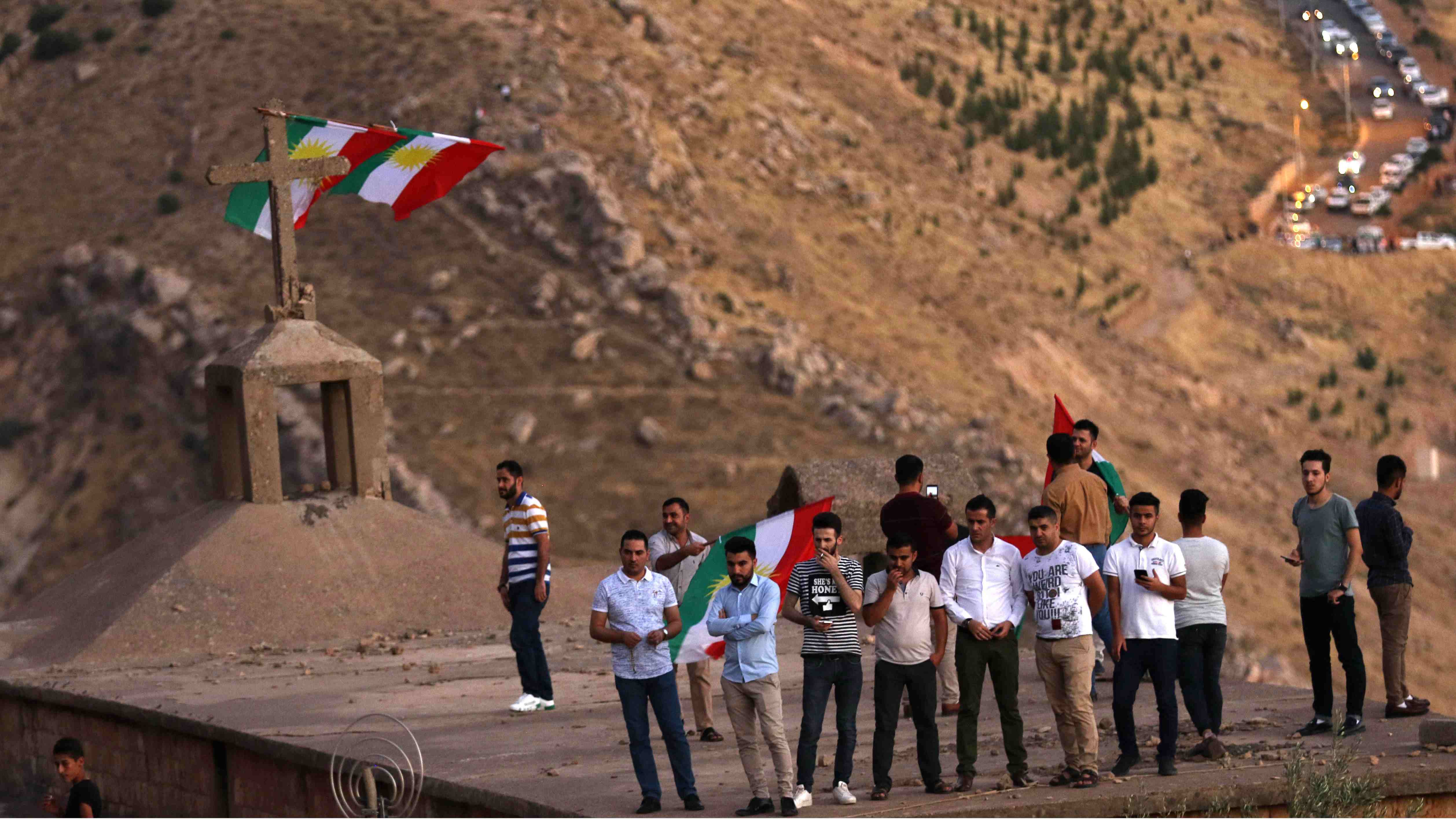
Iraqi Kurds stand on top of a church flying Kurdish flags during a gathering to show support for the upcoming independence referendum and encourage people to vote in the town of Akra, some 500 km north of Baghdad on September 10, 2017. /AFP Photo
Iraqi Kurds stand on top of a church flying Kurdish flags during a gathering to show support for the upcoming independence referendum and encourage people to vote in the town of Akra, some 500 km north of Baghdad on September 10, 2017. /AFP Photo
Kurdish ambitions of a unified nation are seen as a threat to the main host countries.
In Turkey, the Kurdistan Workers' Party (PKK) has been outlawed and labelled a terrorist organisation by the European Union and United States. More than 30 years of fighting with Turkish forces has killed more than 40,000 people.
In Syria, the US-backed Kurdish People's Protection Units (YPG) are one of the most effective forces against the Islamic State (IS) jihadist group. They control more than 10 percent of the country in the north and northeast, and three quarters of the border region with Turkey.
In Iraq, Kurds are an important US ally, and after having resisted the army of dictator Saddam Hussein for decades, now lead the fight against ISIL.
They control roughly 40,600 square kilometers (15,600 square miles) of territory, including many of northern Iraq's oilfields and the cities of Arbil and Kirkuk.
In Iran, where the army crushed a fledgling Kurdish republic in 1946, the Party for Free Life in Kurdistan (PJAK) is pushing for autonomy in three provinces.
Anti-IS spearheads
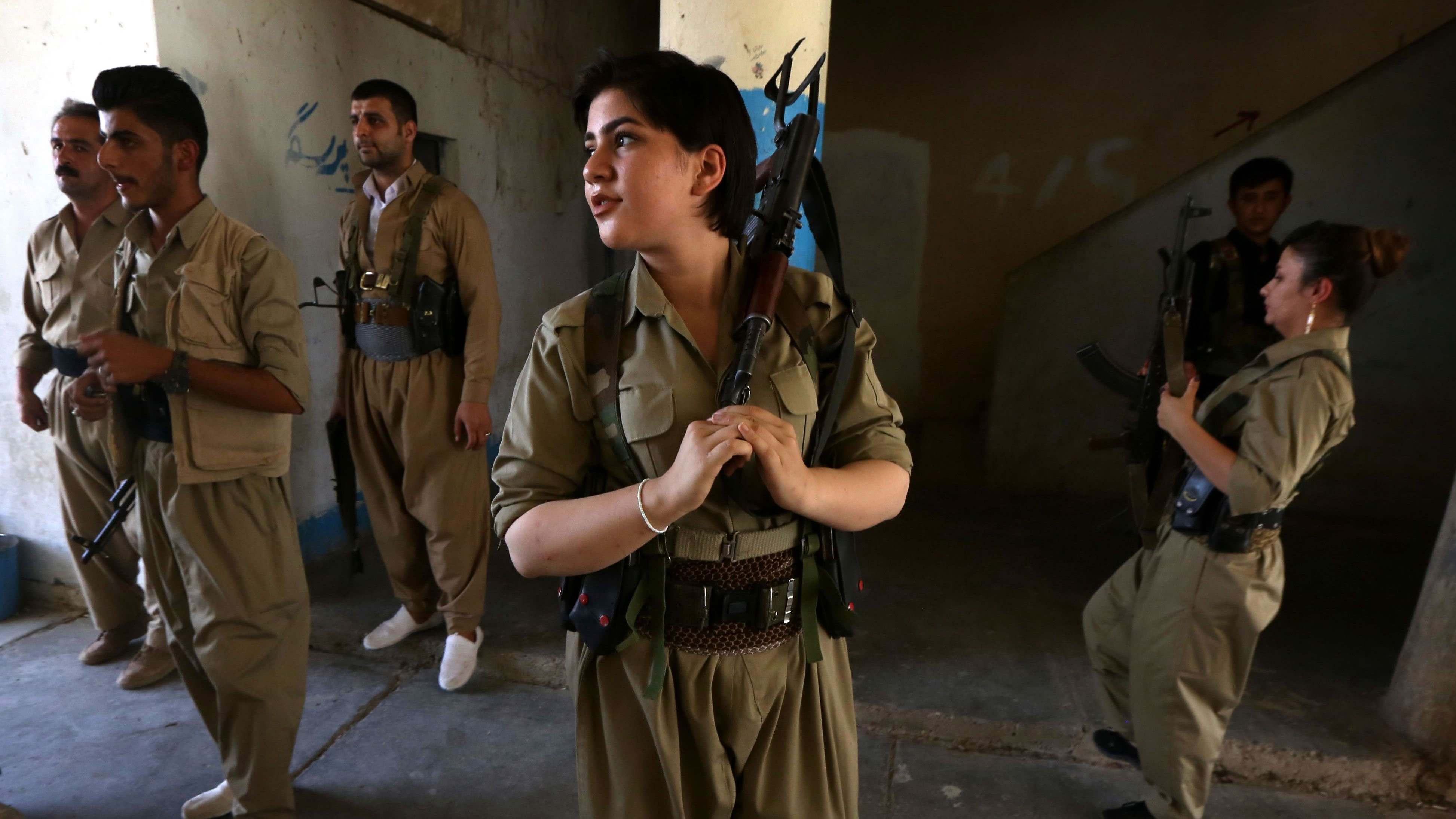
Iranian Kurdish Peshmerga members of the Iranian Kurdistan Democratic Party (KDP-Iran) take part in routine military exercise in Koya, 100 km north of Arbil, capital of the autonomous Kurdish region of northern Iraq, August 23, 2017. /AFP Photo
Iranian Kurdish Peshmerga members of the Iranian Kurdistan Democratic Party (KDP-Iran) take part in routine military exercise in Koya, 100 km north of Arbil, capital of the autonomous Kurdish region of northern Iraq, August 23, 2017. /AFP Photo
Kurdish Peshmerga fighters are considered to be experienced warriors and Western countries have provided them with air cover, sophisticated weapons and training to combat ISIL.
Notable Kurdish victories include the YPG's four-month assault against ISIL fighters in Kobane on Syria's border with Turkey and Peshmerga gains in Iraq.
Turkey has regularly attacked YPG positions in Syria since mid-2015.
Internal divisions
The Kurds have never lived under a single, centralized power and are split among a myriad of parties and factions.
While some of these groups straddle borders, others are in conflict with each other because of alliances with the governments where they live.
Iraq's two main Kurdish parties, the Kurdistan Democratic Party (PDK) and Patriotic Union of Kurdistan (PUK), were locked in a 1994-1998 conflict that left 3,000 people dead. They reconciled in 2003.
Source(s): AFP

